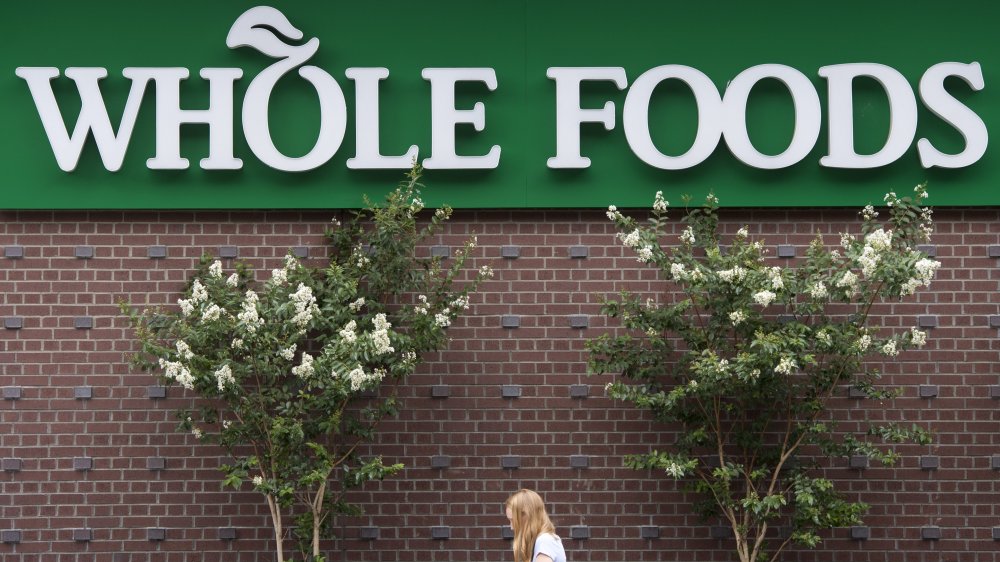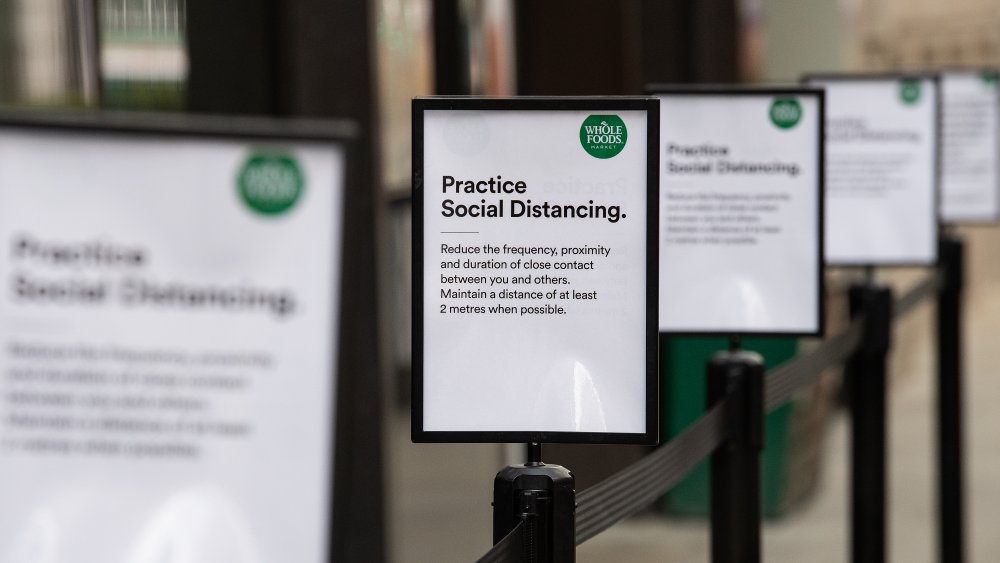Whole Foods Employees Reveal What It's Really Like During The Pandemic
As social distance measures continue, sales surge for both Whole Foods and its parent company Amazon. Amazon is bringing in $11,000 per second in sales (via The Guardian). Whole Foods, the high-end grocery retail arm of the group, is also surging as people stock up on healthy foods and natural supplements at home. Supermarket News reports a 25 percent increase in both overall and online sales during the first quarter of 2020.
Amazon Chief Financial Officer Brian Olsavsky explains further that the in-store experience is vital to Whole Foods sales. That quality in-person experience is highly dependent on a competent and courteous staff — those currently designated as essential grocery workers. Essential workers in the grocery business have been faced with a changing landscape including shifting schedules and additional hiring as well as increased sanitization. One essential worker shares with Refinery29, "We're sanitizing the whole sweep of the store every two hours. It's a constant process — door handles to coolers in the back of the house and the front of the house. Anything that anybody would touch has either been shut down, or it gets cleaned every two hours."
Grocery workers never expected to be in this position
But how do employees really feel? Amazon has been plagued with complaints and protests of how workers are not being protected or paid adequately from warehouses to frontline customer service, such as the "Whole Foods Sickout" a few weeks ago (via The Guardian). The unnamed worker via Refinery continues, "We start our team members at $15 an hour. Whole Foods is paying us an extra $2 an hour right now. Any overtime we get is paid double time instead of time and a half."
Unfortunately, that extra money doesn't feel like it's quite enough. "It's not a job where we signed up to be on the front lines of anything," the worker says. "We're doing the best we can and trying to have as much a sense of community at six feet apart as possible." The $2 increase does little to mitigate risks for many workers, who are stressed and also fear retaliation for speaking publicly about their concerns. Another worker tells NPR, "I never expected that we'd be in the same page as doctors as being essential workers."
It can only be hoped that as the situation continues to evolve, worker welfare will be prioritized.

